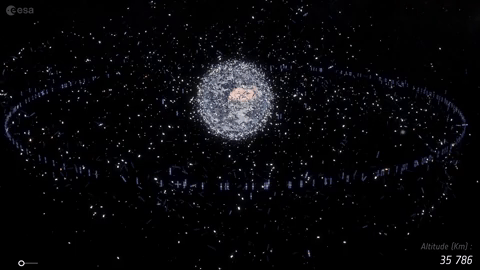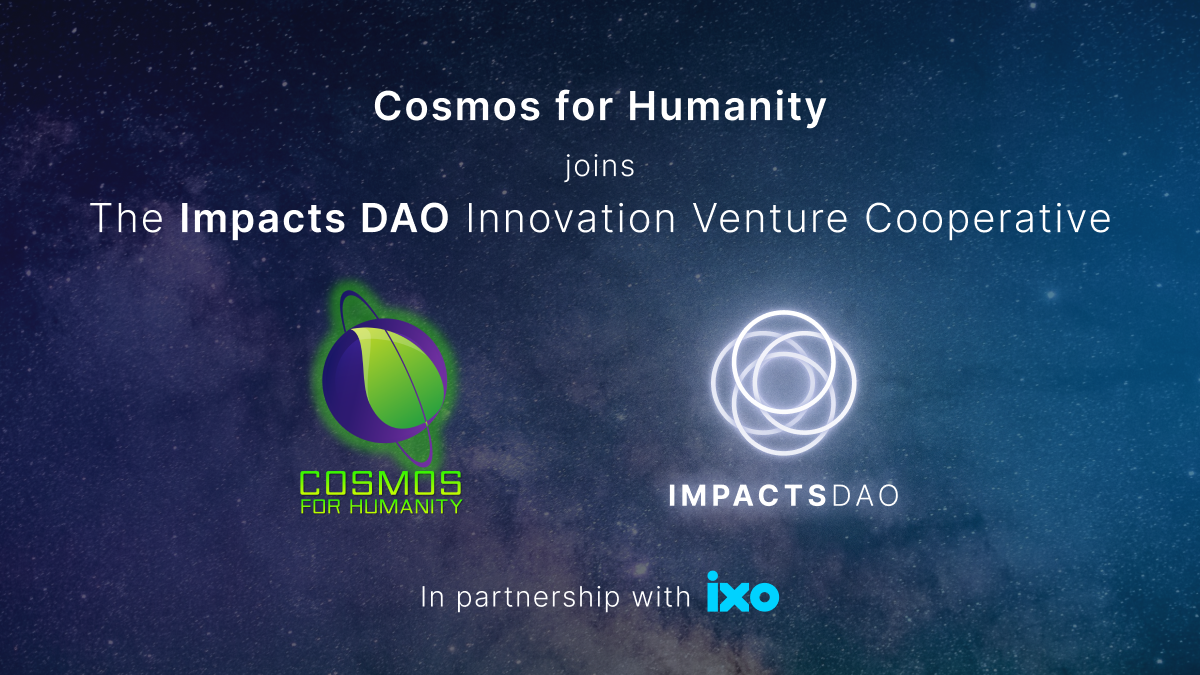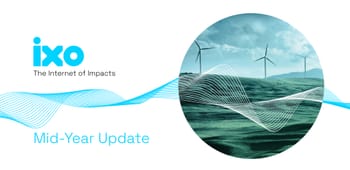Using the Internet of Impacts, Cosmos for Humanity will use citizen science and technology to protect the precious mantle of Earth’s orbits, which are under threat from over-exploitation and irresponsible behaviour.
Announcement of collaboration
Cosmos for Humanity, a NGO dedicated to preserving the orbital environment, is joining the venture cooperative that is building an Internet of Impacts. Pioneered by ixo over the past decade, the Internet of Impacts uses Web3, AI and sensor technologies to create a digital immune system for Earth and Humanity.

The orbits surrounding our planet are threatened by overexploitation. The problems we are creating today will have grave consequences for the future of humanity, if we don’t start protecting the precious space above our heads. Satellite technologies have brought the world incredible advances in communications, geolocalization, and Earth observation capabilities. According to the European Space Agency, there are now more than 10,590 satellites on orbit but only 8,800 still functioning. At the same time, break-ups, explosions, collisions, or anomalous events resulting in fragmentation created a significant amount of space debris: 36,500 objects greater than 10 cm, 1,000,000 from 1 cm to 10 cm and 130 million from 1 mm to 1 cm (ESA, 2023). This accumulation of space junk is already clogging the increasingly congested finite number of useful orbits. With each rocket launch, the Earth's orbits are polluted with waste debris. As waste accumulates in the lower orbits, this poses threats to satellites in orbits and gradually increases light pollution, hampering astronomers' observations from the ground. Just as we have witnessed the pollution of terrestrial ecosystems, such as floating plastic trash islands in the oceans, we are also witnessing the pollution of space. It is essential to ensure healthy orbits to reduce the probability of calamities in the future, and hold polluters of outer space accountable.
The Internet of Impacts
The Internet of Impacts is a multi-network ecosystem of Web3, AI, sensors and related technologies and services for sustainable human development, social security, energy transitions, and ecological regeneration. The Impacts DAO Cooperative is a Venture Cooperative that makes outcomes-based- investments into innovations, projects and research that will result in solutions built on the Internet of Impacts being delivered in markets where these are needed.
The Impacts DAO Cooperative provides coordination mechanisms that are redefining how organisations work in cooperation and across traditional boundaries, to achieve shared goals with inventive-alignment and transparent governance. As a member of Internet of Impacts DAO Cooperative, C4H brings its capabilities for Earth observation, partnerships with Space Agencies, and growing citizen science movement, as contributions to this ecosystem that will use its collective innovations to ensure there is more sustainable, transparent and accountable use of Earth’s orbits and the space around our planet.
ixo
A pioneer of the Internet of Impacts, building digital measurement, reporting, verification and financing solutions. The ixo software infrastructure is interoperable and is increasingly being recognized by leaders in outcomes-based finance and Impact verification. The ixo blockchain platform and related software applications are already being used to finance and verify the switch to clean energy cooking, primary education, and youth skills development and employment. Solutions are in the pipeline for clean water access and reducing water wastage, regenerative agriculture, renewable energy, healthcare, and ocean economy. As a founding member of the Impacts DAO Cooperative, ixo is partnering with C4H, to build a solution for protecting and ensuring accountability for Earth’s orbital space.
Cosmos for Humanity
Cosmos for Humanity is a Swiss NGO based in Neuchâtel, dedicated to promoting the sustainable development of space activities and acting to preserve the orbital environment. C4H is raising awareness surrounding the consequences of orbital pollution, and advocates more rigorous accountability through the participation of citizens to the verification mechanisms.
C4H also advocates the adoption at European level of the Outer Space Footprint, an indicator designed to inform consumers of the environmental cost of products and services using satellite data.
Partnership
The partnership between ixo and C4H intends to reward citizens for collecting environmental data from company records. Using the ixo blockchain, the organisations will develop a decentralised certification process, space sustainability label, and mechanism that rewards citizens for collecting environmental data from space-oriented companies. This is to foster a more democratic way of awarding sustainability-oriented labels, based on radical transparency and broad civic participation.
If you are interested in finding out more please follow ixo and C4H on X. Or get in touch directly with ixo or C4H.


